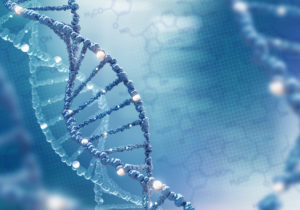By Joyce Bichler, Deputy Director
 Yesterday, the Food and Drug Administration (FDA) for the first time approved an at-home genetic testing kit without a doctor’s prescription to predict the risk of breast cancer. While there’s no doubt the move will be celebrated by some, the truth is that there is cause for serious concern. This decision by the FDA threatens to do more harm than good for women at risk of and living with breast cancer.
Yesterday, the Food and Drug Administration (FDA) for the first time approved an at-home genetic testing kit without a doctor’s prescription to predict the risk of breast cancer. While there’s no doubt the move will be celebrated by some, the truth is that there is cause for serious concern. This decision by the FDA threatens to do more harm than good for women at risk of and living with breast cancer.
Most immediately, the 23andMe test approved for over-the-counter use looks at just three of the more than 1000 known BRCA1 and BRCA2 mutations. While these three specific mutations are the most common BRCA1 and BRCA2 mutations for people of Ashkenazi ancestry, they are not the most common BRCA mutations in the broader population, raising serious health equity concerns. This means that if you’re someone who receives a negative result from the 23andMe test, there is still the possibility that you may carry other harmful BRCA mutations that increase the risk of breast cancer.
At Breast Cancer Action, we’ve long argued that genetic testing should always be accompanied by independent professional genetic counseling before AND after genetic testing. No matter what the results, genetic testing nearly always raises complex practical and emotional issues that genetic counselors can help decode the complex risks and interpretations of the tests (both positive and negative).
Additionally, 23andMe’s test raises questions about the ownership of our genetic data, an issue which Breast Cancer Action has also been outspoken about. In the past, we’ve seen that 23andMe’s core business model has been to hoard (and sell) the genetic information that it collects from its direct-to-consumer kits. Back when we challenged Myriad Genetics at the U.S. Supreme Court for their patent on the human BRCA genes, we argued that genetic testing companies should contribute to anonymized, open-access research databases, such as the Breast Cancer Information Core (BIC) to help advance science and health.
With this latest approval the FDA has opened the door to at-home genetic tests that may do more for companies than for women at risk of living with breast cancer.